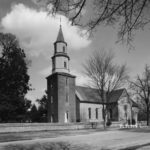This short video examines impact of Reformed Christianity on the minds and hearts of the Framers of the Constitution. Influenced by the writings of John Locke, Algernon Sydney, and John Calvin, Founders such as George Washington and John Adams believed that religion should play an informal, though important, role in American Society. Professor Jeffry Morrison examines Adams’ contention that colonial fears of British bishops helped to inflame revolutionary sentiments.
Election of 1800
In this activity, students will analyze the Electoral College tally for the presidential election of 1800 between John Adams and Thomas Jefferson.
Early Presidents (CKHG Unit)
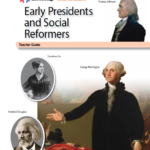
This unit (first half of Early Presidents and Social Reformers) focuses on the first seven presidents of the United States. Across 9 lessons, students learn about how the early presidents organized the federal government, built a national capital, directed a second war with Great Britain, more than doubled the size of the country, and formulated a “hands-off” foreign policy in the Western Hemisphere.
Documents and Debates in American History and Government – Vol. 1, 1493-1865
The Core Documents Collection – Documents and Debates is structured around a series of topics, each based on a question for debate. For each topic, there is a collection of documents that, together, form the basis of argument over that topic – from those who debated it at a given point in American history. Volume One covers 1493-1865, and Volume Two covers 1865-2009.
The goal is to explore a series of critical moments in American history by asking questions for which there are not simple yes/no answers, but instead call for informed discussion and rational debate. The Documents and Debates readers also include appendices of additional documents, and together are a perfect fit for any American History survey course, including AP U.S. History.
The American Revolution (CKHG Unit)
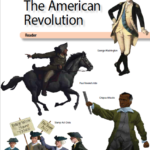
This unit begins by providing background information on the establishment of the thirteen colonies. Across 25 lessons, students learn about early alliances, the French and Indian War, and causes and provocations of the American Revolution. Students are introduced to major ideas in the Declaration of Independence and to key figures in the Revolution, as well as art and literature representative of the period.
Includes 25 lessons of roughly 45 minutes each.
Forgotten Founders
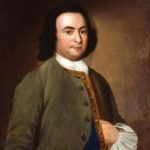
This short video examines why some Founders have been “forgotten” by subsequent generations. Some individuals, like John Dickinson, found themselves “on the wrong side of history”. Others, like Samuel Adams, played no further role on the national stage. Professor Daniel Dreisbach explains how an early death (e.g. George Mason) or a minimal written record also contributed to some Founders being “forgotten.”
Founders Online
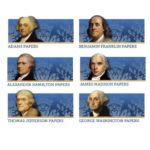
The website brings together the papers of six of the nation’s Founders (Washington, Adams, Jefferson, Madison, Franklin, and Hamilton) into one searchable database. The site has taken the content produced by teams of historians and documentary editors who have worked for many years to transcribe and annotate thousands of primary source documents from hundreds of sources and publish them. The website combines all these document transcriptions and annotations into one free online resource.
Marbury v. Madison
In this lesson, students will view video clips explaining the Supreme Court case Marbury v. Madison. Students will analyze the significance of the case, the precedent it set and its legacy.
Who Were the Foremothers of the Women’s Suffrage and Equality Movements?
This lesson looks at the women’s suffrage movement that grew out of the failing of the Continental Congress by “remembering the ladies” who are too often overlooked when teaching about the “foremothers” of the movements for suffrage and women’s equality in U.S. history. Grounded in the critical inquiry question “Who’s missing?” and in the interest of bringing more perspectives to whom the suffrage movement included, this resource will help to ensure that students learn about some of the lesser-known activists who, like Elizabeth Cady Stanton, Lucretia Mott, and Susan B. Anthony, participated in the formative years of the women’s rights movement.
The Constitution in Action – Political Parties and Presidential Electors: The Election of 1800
History is the chronicle of choices made by actors/agents/protagonists in specific contexts. This simulation places students in the Early Republic and asks them to engage in the politics of those times. Acting as either Federalists or Republicans, they will be asked to develop strategies for electing their party’s standard bearer as president, using the Constitution’s complex system of presidential electors to their advantage.
